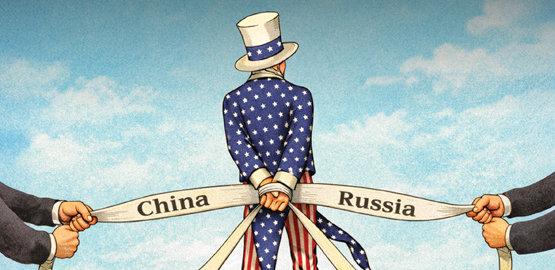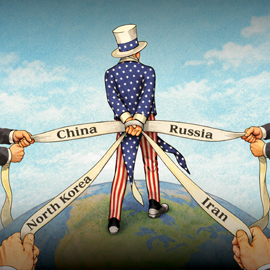News
Five Shades of Chinese Gray-Zone Strategy
Deterring aggression in the “gray zone” is hard. The keeper of an existing order—an order such as freedom of the sea—finds itself conflicted. That’s because gray-zone aggressors deliberately refuse to breach the threshold between uneasy peace and armed conflict, justifying a martial response. Instead they demolish the status quo little by little and replace it with something new.
Six China Myths and the Need to Diversify Our Asian Links
When considering Australia’s future in Asia, many of us have had difficulty looking beyond China—but we have many better options in Asia. At the core of our misperceptions are six myths about the potential for cooperation with Beijing.
6 Things We Know About Trump’s Foreign Policy After 100 Days
The Trump administration is nearing its 100-day marker, a useful milestone for reflecting upon what the president has done and where he is going. There is certainly much to consider: President Donald Trump came to Washington pledging to break dramatically with American foreign policy as we have known it for decades, and his early presidency has been a whirlwind of activity, controversy, and chaos. So what do we know about foreign policy in the Trump era? There are six key takeaways so far.
Erdogan’s Counter-Revolution: What Went Wrong in Turkey?
The history of the twentieth century is littered with the carcasses of failed revolutions. Lenin, Stalin, Mao, Mussolini, and Hitler all tried to master modernity—to curb or accelerate it—and all failed. After the attacks on September 11, 2001, it appeared the most consequential revolutionary of the last century might turn out to be Mustafa Kemal Pasha, better known as Atatürk, founder of the secular Republic of Turkey. Amidst the wreckage of the multinational Ottoman Empire, Atatürk emerged victorious, using bourgeois nationalism as a basis for reforming a Muslim country in an attempt to demonstrate that popular sovereignty and Islam could successfully coexist. That proposition remains to be disproven, but the Atatürk revolution itself died on April 16, 2017—the day Turkey's current president, Recep Tayyip Erdogan, succeeded in his longstanding effort to transform the country's parliamentary government into an executive presidency.
U.S. Grand Strategy in an Age of Nationalism: Fortress America and its Alternatives
America is an exceptional nation, but not when it comes to the wave of nationalism sweeping the globe. Across multiple continents, leaders and polities are pushing back against globalization and integration; they are reasserting national sovereignty as a bulwark against international tumult. In the United States, this nationalist resurgence has manifested in a sharp and potentially existential challenge to the internationalist project that has animated U.S. grand strategy since World War II.
5 Things We’re About to Learn About Syria, Putin and Trump
As a result of the U.S. airstrikes against the Syrian military last week, we are all about to learn a great deal. It is, surely, too soon to know precisely what impact the strikes ordered by President Donald Trump will have on the regime and where the Syrian civil war is heading. This is largely because key players including Syrian President Bashar al-Assad, Russia, Iran and the Syrian opposition -- not to mention the U.S. -- are still plotting their next moves.

























